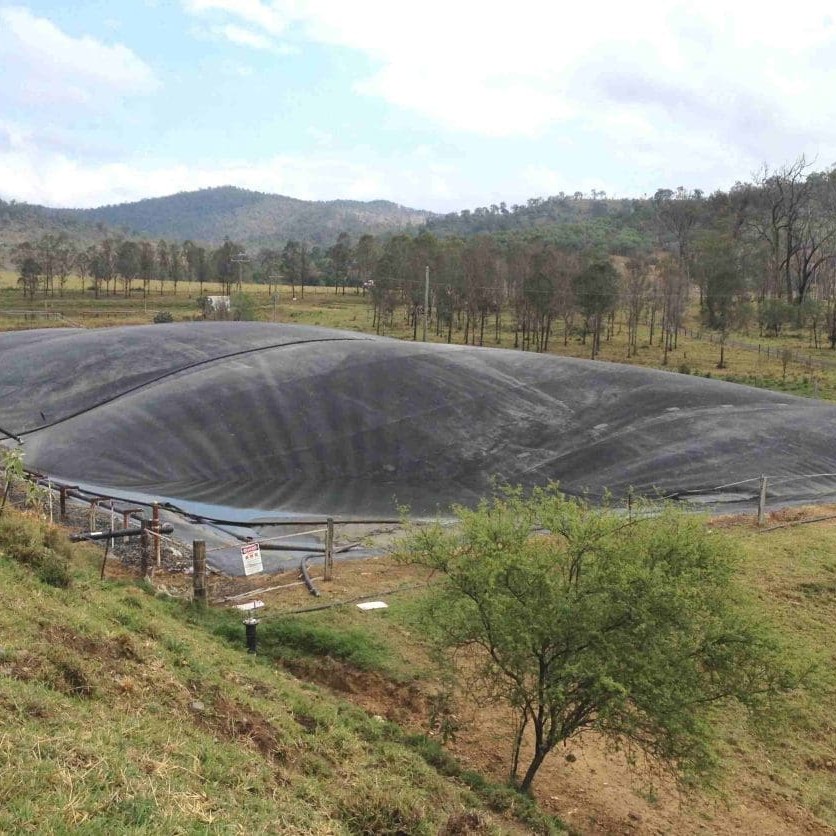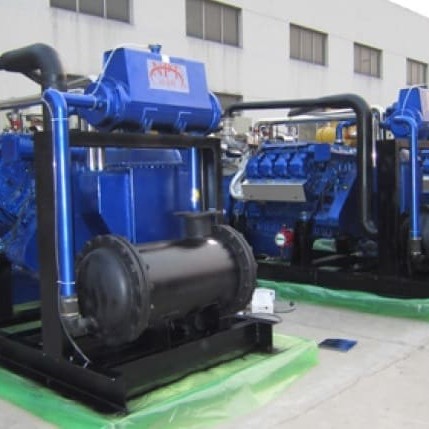With two major methane capture and biogas generation projects worth around $25 million announced by red meat processors in the past week, the Federal Government’s Clean Energy Finance Corporation has established a new initiative to help smaller to mid-sized agribusinesses initiate carbon abatement and energy efficiency projects under attractive terms.
As reported on Beef Central on Tuesday, Thomas Foods International will spend $20 million at its Murray Bridge (SA) plant on an integrated wastewater treatment and a covered-pond methane capture process, together with modification to boiler infrastructure to run on methane, as well as conventional energy sources.
On Friday last week, Oakey Holdings announced plans for its own $5 million methane capture and power generation project, which is expected to carve 40pc off the Queensland plant’s annual natural gas energy bill, and generate the energy equivalent of a megawatt of electricity each day.
 Biogas holds tremendous potential for the intensive agriculture, meat and food processing industries because it offers significant opportunities for cost-effective and efficient energy savings, renewable energy generation and carbon abatement.
Biogas holds tremendous potential for the intensive agriculture, meat and food processing industries because it offers significant opportunities for cost-effective and efficient energy savings, renewable energy generation and carbon abatement.
It has been suggested that Australian agriculture and meat processing industries alone could abate more than two million tonnes of greenhouse gas emissions a year for a capital investment of around $300 million.
Bio-energy currently generates an estimated 2400 gigawatt hours of electricity in Australia each year – about 8pc of the country’s renewable energy generation, or just over 1pc of Australia’s total energy generation, according to the Clean Energy Council.
each year – about 8pc of the country’s renewable energy generation, or just over 1pc of Australia’s total energy generation, according to the Clean Energy Council.
The Federal Government’s Clean Energy Finance Corporation recently announced plans to work with specialist biogas company Quantum Power, providing finance to catalyse up to $40 million in new biogas infrastructure projects that promise to cut energy costs for other agribusinesses and food manufacturers.
CEFC chief executive Oliver Yates said the collaboration would allow Australia’s food producers and manufacturers across the country to benefit from greater control over their energy costs and improve their competitiveness in a global market.
“Agribusiness plays an important economic role in regional Australia, helping to feed the nation and service growing export markets. The food processing sector has faced rising energy costs and getting control of those costs helps with their competitiveness,” Mr Yates said.
Biogas production offered regional Australian agribusinesses and manufacturers a way to increase their control over a significant input cost, thereby boosting their energy productivity in the face of rising electricity and other energy costs that have reduced margins.
New structure means no up-front cost to the user
CEFC’s agreement with Quantum Power announced last week would enable more food processers and other agribusinesses to turn onsite waste streams into a valuable source of energy, Mr Yates said.
Under the proposal, Quantum Power would build and manage the onsite facilities, leaving businesses free to keep focused on their core operations.
Finance for agreed Quantum Power projects would be on a deal-by-deal basis, with each project likely to cost around $2-$4 million depending on size and scope. Projects of this size have typically found it difficult to find project finance in the private market.
“The CEFC finance will help solve that barrier and will bring forward construction of new biogas projects, while creating a structure that private sector financiers can support in the future,” Mr Yates said.
The Quantum Power company builds, owns, operates and maintains biogas plants at no up-front cost to the user.
Chief executive Richard Brimblecombe said a participating business’s organic waste was converted to a bio-energy supply that is used to power its operations, with the company agreeing to purchase the generated power at an agreed rate for a specified time.
“This gives the business certainty over its power bills and reduces costs associated with organic waste disposal,” he said.
Rendering project delivers 35pc reduction in power bill
CEFC has already partnered with Quantum Power to accelerate two Queensland agribusiness biogas projects – an anaerobic digester for an egg production facility and a biogas plant upgrade at a major rendering plant.
The first is an installation at A J Bush & Sons’ Beaudesert rendering facility in the state’s southeast. AJ Bush is Australia’s largest renderer, taking raw material from a large number of red and white meat abattoirs and processing facilities across southeast Queensland.
The company has installed 1MW of purpose-built biogas engines at its processing facility, maximising the use of on-site biogas resources and avoiding 23,000 tonnes of CO2-e direct emissions.
The upgrade is expected to reduce A J Bush’s grid electricity consumption and the associated carbon emissions by 35 percent. Local air quality and amenity will also be improved as the additional anaerobic digesters will be covered. CEFC provided finance to Quantum Power for half the $1.2 million project cost.
A second agri-sector project constructed by Quantum Power will cut Darling Downs Fresh Eggs’ grid electricity usage by 60pc in the first year and save more than $250,000 a year in energy costs. The biogas facility will also reduce carbon emissions by up to 1000 tonnes a year and methane emissions by more than 6000 tonnes of CO2-e each year.
Quantum Power Ltd claims to be Australia’s leading biogas company, saying it has designed and constructed more biogas-fuelled power stations in Australia than any other provider. The company is a developer, owner and operator of power stations generating electricity and co-generated heat primarily from biogas.
The company provides complete turn-key solutions and also offers a unique build, own, operate and maintain (BOOM) model to provide its customers the benefits of anaerobic digestion systems and biogas fuelled power stations without the need for up-front capital.
In 2013, CEFC’s investments of $536 million in carbon abatement projects mobilised on average $2.90 of private sector investment for every $1 of CEFC investment, and will achieve abatement of 3.9 million tonnes of CO2e per annum. These investments will deliver a positive return to the CEFC, with a cost of abatement in the order of negative $2.40/tonne of CO2-e.
- More details about the CEFC/Quantum Power project model can be accessed here.
